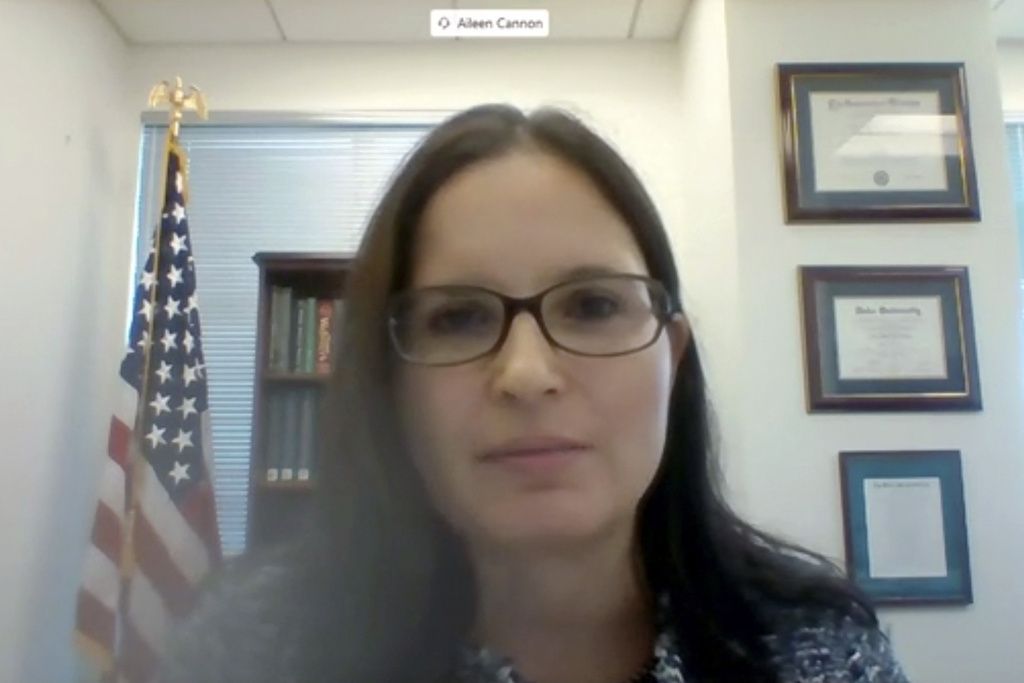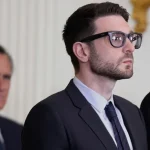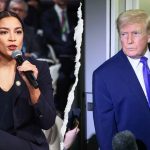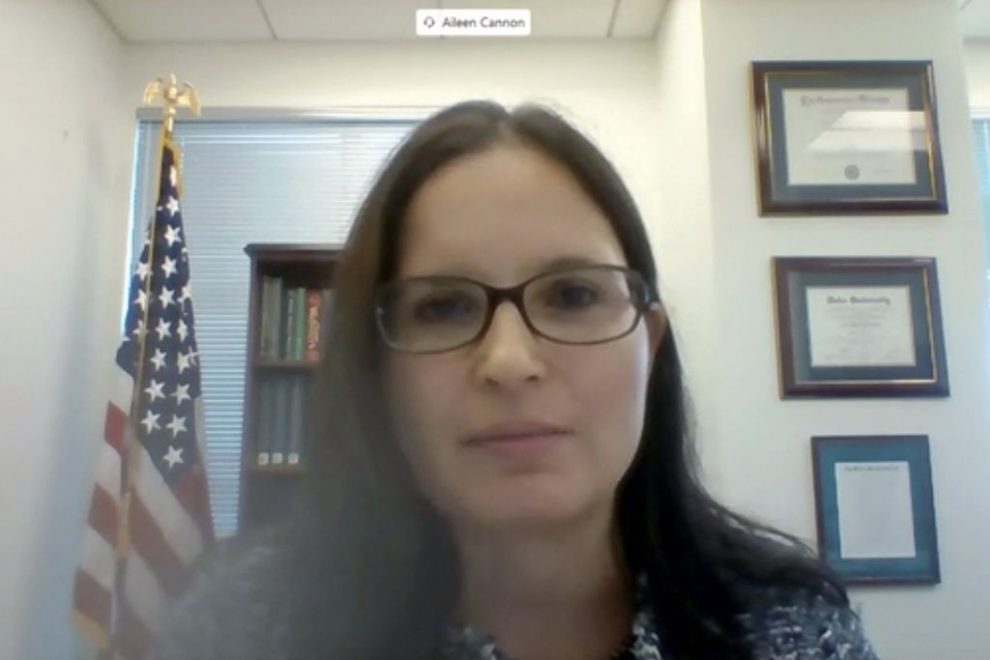Judge Aileen Cannon grilled attorneys in Florida on Friday about how much independence special counsel Jack Smith had over the classified documents case against former President Donald Trump.
Cannon’s questions came as part of hearing on a request Trump made in February that the case be dismissed on the grounds that Attorney General Merrick Garland allegedly unlawfully appointed Smith as special counsel.
The hearing was dense and involved Cannon, a Trump appointee, entertaining weedy legal theories about the constitutional provisions and statutes that govern special counsel appointments, according to reports from the courtroom.
The judge did not rule from the bench on Trump’s motion to dismiss his charges, and she has set aside three more days of hearings next week to continue the discussion, as well as address other pending legal disputes in the case.
In court documents ahead of Friday’s hearing, Trump’s attorneys had argued that outside of Smith and Robert Mueller, no one in the last 40 years has been appointed special counsel who had not first served as a Senate-confirmed U.S. attorney.
At the hearing, Trump attorney Emil Bove said at one point that if Garland could grant someone special counsel authority who had not already been vetted by the Senate, then Garland was effectively running a “shadow government,” according to NBC News.
“That sounds very ominous, a shadow government. But what does that mean?” Cannon asked.
Bove said it was merely the risk that appointing non-U.S. attorneys poses, to which Cannon questioned if that was “really a realistic risk” when “well-defined” statutes already dictate special counsel authorities.
Toward the end of the hearing, Cannon also raised an issue Trump has been highly vocal about: what involvement, if any, Garland, and by extension President Joe Biden, had in the federal prosecutions against him.

James Pearce, a prosecutor arguing on behalf of Smith, appeared caught off guard by Cannon’s question, according to Politico. Pearce eventually said he was “not authorized” to discuss communications between Garland and Smith.
“I don’t want to make it seem like I’m hiding something,” Pearce said.
The question came as part of Cannon’s quest to define how Smith acted independently of Garland while also acting as a subordinate to him.
The judge had numerous questions about special counsels prepared for both parties and did not give any signs about how she might rule on Trump’s request, according to courtroom reports.
Cannon’s decision to hold a hearing on the special counsel question has drawn criticism from some who say that arguments surrounding special counsel appointments have been exhaustively entertained in courts.
National security attorney Bradley Moss said ahead of the hearing that the question “should have been resolved weeks ago on the papers alone” and that there was “no need for a lengthy hearing.”
The scrutiny over Cannon’s pace comes after the judge had initially scheduled a trial to begin in May 2024 but then scrapped the date because of a logjam of legal motions and other incomplete pretrial steps. The judge has not yet set a new date.
CLICK HERE TO READ MORE FROM THE WASHINGTON EXAMINER
Former U.S. Attorney John Fishwick told the Washington Examiner “there is no good reason” that Cannon has not set a date.
Cannon’s approach has been favorable to Trump, who pushed for a trial to occur after the presidential election. The buildup of unsettled disputes in the case and Cannon’s willingness to hold full hearings on matters that other judges might not normally hold has made the prospect of a post-election trial increasingly likely.
























